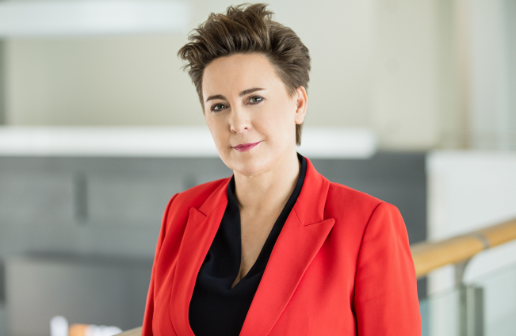Q: What does this digitisation involve?
This term may have different meanings for different industries but the first basic common denominator is access to fast internet. Secondly, migration of data, whole systems and applications to web-based cloud services. This provides a number of benefits including flexibility of operations, agility and scalability, and all at a lower cost despite the initial investment needed. The third pillar is development of data analytics and artificial intelligence. A combination of 5G, IoT solutions and AI will be key for future competitiveness as it will facilitate the automation of industrial processes.
Q: How do we help our customers to digitise?
Thanks to our very strong foothold in connectivity (owing to our massive investments in fibre) and competencies in the ICT area (built organically and through acquisitions) we are the only company in Poland capable of delivering end-to-end solutions allowing for digital transformation to corporates from every sector. The services range from cloud, infrastructure and cybersecurity delivered in integration model, to software and applications. One very important factor in strengthening our position here were the acquisitions of BlueSoft and Craftware. They allowed us to capture immense growth of the software and application and CRM markets just as their acceleration was triggered by the pandemic. Both companies generated revenue growth exceeding 25% in 2021.
Q: How might 5G change the B2B market in the future?
Previous generations of mobile technologies (3G and 4G), while they influenced the business market, were mainly revolutionising the consumer market with the ability to send pictures online and watch video. It seems that 5G will be a game changer mainly for the B2B market.
Q: What makes this technology different?
Apart from higher speeds, it is low latency (the time needed for two devices to communicate) and much bigger capacity. The latter means that the number of devices that can be connected at the same time will be much higher, even up to 1 million objects per 1m². This is 10 times more than 4G technology. These last two features, when combined, are critical to open completely new application opportunities for enterprises in many industries. The other unique feature is network slicing, making it possible to dedicate a certain ‘slice’ of mobile spectrum for dedicated use on a given premises for a given customer. This means that mobile network can be also for 'private’ use not only public. 5G will be very synergetic with the development of technologies like machine learning, artificial intelligence (AI), virtual and augmented reality (VR/AR) or big data. Another very important element here is the cloud. 5G will co-exist with systems and services that are moved to the cloud, that is increasingly taking place among Polish corporates.
Q: What does it mean for businesses?
It opens a whole array of new opportunities that I believe will be revealed over many years to come. I do not exaggerate when I say, it will be a revolution. It concerns both private and public sectors. 5G will be enable the creation of ecosystems of digital solutions for business transformation called campus networks. Many sectors will take advantage of that opportunity, but we see the highest potential in Industry 4.0 concept in areas like logistics centres, ports or refineries. Many sectors will take advantage of it, but it seems that a particularly high spectrum of benefits exists in industrial processes that include warehouse and logistics management. Manufacturing processes will be automated and because production robots will communicate between each other, these processes will be much more efficient. Analysis and monitoring of data generated in this production will be conducted in real time and will be much more accurate. It will improve quality control, supply chain management and preventive maintenance. This means higher productivity and a higher competitive position on the market. What is particularly important is that this private ecosystem means that network is safe, as its elements are separated, dedicated and located at the customer’s premises.






